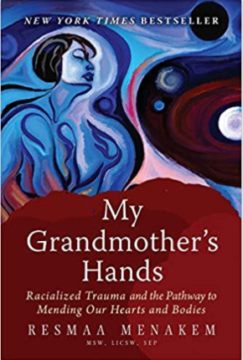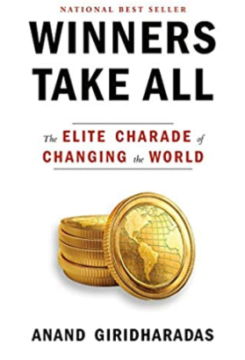What is Giving Compass?
We connect donors to learning resources and ways to support community-led solutions. Learn more about us.
Search our Guide to Good
Start searching for your way to change the world.
Camelback Ventures’ Giving Compass collection, Racial Equity in Philanthropy, will explore just that. We’ll explore similar themes from varied perspectives – our team, Fellows, coaches, advisors, and facilitators – to take a holistic look at how we might move to racial equity in philanthropy by exploring privilege (especially white privilege), personal practices, and organizational processes. Most importantly, we welcome your feedback and ideas along the way – after all, we are moving towards collective liberation. You can learn more by visiting Camelback Ventures or following CBV on Facebook @camelbackorg, Instagram @camelbackventures and Twitter @camelbackorg.
Camelback Ventures’ mission is clear-cut: To identify, develop, and promote early-stage BIPOC and women entrepreneurs with the aim to increase individual and community education, and generational wealth. Camelback’s long game is to make generational wealth (the pursuit of the American Dream) accessible for everyone; this means ending the racial wealth gap. However, to build a nation of equal opportunity for everyone, we need to collectively dismantle systematic racism that plagues our schools, our communities, our criminal justice system, our political system, and even how funders support BIPOC and women founders in the philanthropic world.
When you know better, you can do better. And this is why striving to be “antiracist” in your philanthropic work is something that takes daily practice through tough conversations and taking the time to better educate yourself. One of the best ways to do this is by reading books.
Below are Camelback Ventures’ four favorite resources to advance your racial equity work (in philanthropy) this fall. We recognize this list only scratches the surface, however, we hope these readings will prompt you to reflect on three key points: 1) confront your self-serving beliefs; 2) serve as a reminder that saying “I’m not racist” is a slogan for denial; and 3) make you more mindful in how you execute your philanthropic role with racial equity top of mind.
 Reviewed By: Aaron T. Walker, Camelback Ventures CEO & Founder.
Reviewed By: Aaron T. Walker, Camelback Ventures CEO & Founder.
My Grandmother's Hands is a reminder that "the body keeps score." And until we deal with the trauma all of our bodies have inherited and are holding, then we will not make progress.
My biggest takeaway is that nothing will change until we deal with the trauma that has created the reality that Black bodies are dangerous and White bodies are innocent and vulnerable. It's why Dylan Roof is taken by law enforcement to a fast food restaurant after killing 9 Black people and Black people are shot in the back while walking away. It is also why white founders are given more money and more chances than Black founders. The acts are different, but they emanate from the same ideas about the danger of Black bodies.
I recommend this book to philanthropists because it is a guide to self-healing. It doesn't require anyone, but one looking in the mirror and starting to deal with one’s trauma.
 Reviewed By: Riyaz Gayasaddin, Camelback Ventures V.P. of Program and Talent
Reviewed By: Riyaz Gayasaddin, Camelback Ventures V.P. of Program and Talent
I liked Winners Take All because of the world we live in with entrepreneurs and philanthropy. It is a good reminder that we, as humans, are conditioned to listen to “thought leaders” and need to think about the potential damage they may be causing to those they want to help.
Even after reading this book, I continue to think about how one becomes a “thought leader”, what that means, and how we rely on them when, at times, they are contributing to the problem. An example is the Sackler family, who has given millions of dollars away and have been seen as model philanthropists, however, their own businesses have been a leading enabler of the opioid addiction in this country. It makes me think more consciously about the do-gooders and how they may benefit off the backs of BIPOC and other marginalized groups and still be seen as heroes.
I recommend this book to philanthropists because it takes a critical look at where the money goes and how it could be used differently. Philanthropy has the power to ensure they are not working on the fringes of making reforms, but are helping to create a revolution instead.
 Reviewed By: Nadiyah Morris, Camelback Ventures Program Director
Reviewed By: Nadiyah Morris, Camelback Ventures Program Director
The economic disenfranchisement of Black Americans was not an outgrowth of other racist systems. Rather, it is the undergirding of every discriminatory outcome in our country. A set of laws, policies, and practices executed by the Federal government and empowered White Americans, effectively ensured the economic enslavement of Black Americans up and into our current modern “post-racial” times.
Systematic disenfranchisement of Black Americans cannot be earnestly undone until we understand what mechanisms created - and maintain - the status quo. The American banking system has been used as a covert and effective weapon against Black Americans. It is so insidious that many of us don’t know we should be looking to eradicate and repair that which has impacted so many systems: education, health, criminal justice, etc.
I recommend The Color of Money for anyone that has any desire to positively affect the negative social indicators experienced by Black Americans.
 Reviewed By: Caroline Lutkewitte, Camelback Ventures Programs Manager
Reviewed By: Caroline Lutkewitte, Camelback Ventures Programs Manager
I chose to read Decolonizing Wealth because I believe making access to and the flow of capital more equitable is integral to working toward an anti-racist society. By analyzing how these factors are influenced by philanthropy, this book gives readers a holistic critique of the sector.
This book made me consider the ways that philanthropy is exclusionary not only to diverse grantees, but also to the people working within these institutions. For example, the book’s author Edgar Villanueva recounts how the cold, sterile interiors of many foundation offices are isolating for people of color in contrast to their communities. The fact that the overwhelming majority of leaders in philanthropies are white only furthers this divide.
I believe people in philanthropy could greatly benefit from the perspective of Native communities and traditions as an alternative to the exploitation and transaction common in the sector. This book provides powerful solutions and reflections for us all to consider in confronting oppressive systems and power imbalances.
Categories:
- North America